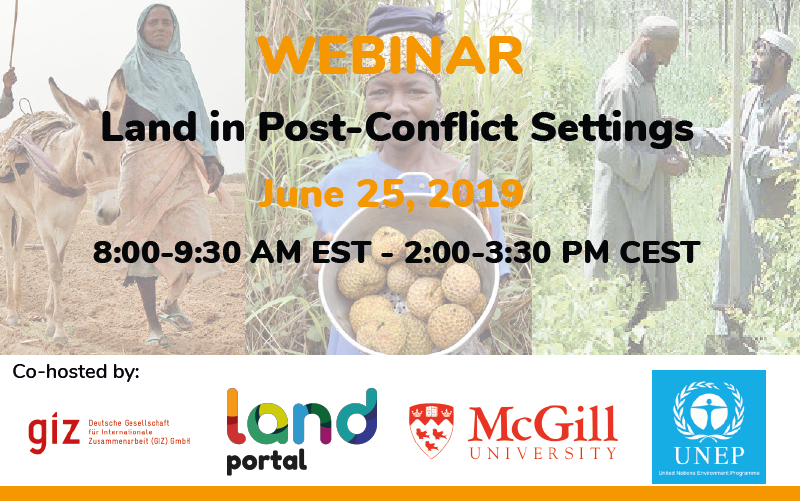The webinar on Land in Post-Conflict Settings took place on 25 June from 2:00 PM - 3:30 PM CEST (8:00-10:30 AM EST or 4:00-5:30 PM EAT).
Post-war societies not only have to deal with continuing unpeaceful relations but also land-related conflict legacies, farmland and forest degradation, heavily exploited natural resources, land mines, a destroyed infrastructure, as well as returning refugees and ex-combatants. In the aftermath of war, access to and control of land often remains a sensitive issue which may precipitate tensions and lead to a renewed destabilization of volatile post-conflict situations.
Land governance in post-conflict environments is often characterized by weak governance, dysfunctional legal systems and lacking administrative capacities, corruption, lack of transparency and accountability, power disparities along class, gender, and generational lines, loss of legal documents, mismanagement, competition based on ethnicity and identity, as well as the illegal use of land and natural resources. The concurrence and confusion of plural legal systems may prolong the review of land tenure systems as customary tenure, religious and indigenous law may oppose statutory law.
This webinar addressed issues of displacement, international principles to mitigate post-war land restitution, land legacies and tenure reforms, repercussions of commercial land deals and infrastructure projects, as well as interlinkages to conflict transformation.
Moderator: Anne Hennings, Research fellow, University of Muenster, Germany
- Jon Unruh, Associate Professor in the Department of Geography, McGill University, Canada
- SiuSue Mark, PhD, Land & Natural Resources Advisor, Joint Peace Fund
- Alexandre Corriveau-Bourque, Independent consultant
- Odongo James, Program Advisor, GIZ-CPS Uganda
- Julius Omony, Program Advisor, GIZ-CPS Uganda





